patterns > The Annual >  The Annual by John Arbon Textiles (issue five)
The Annual by John Arbon Textiles (issue five)
> Prestwick Pebble Wrap



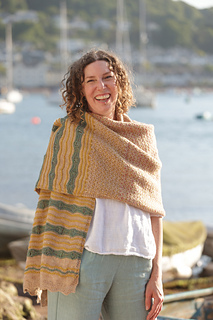
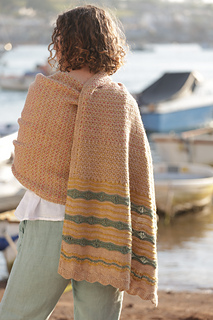
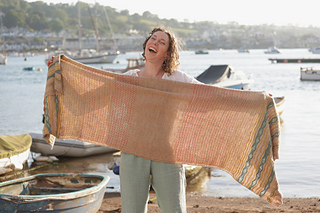
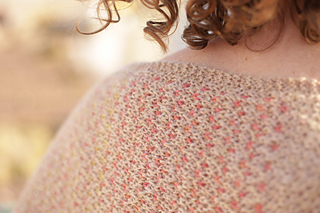




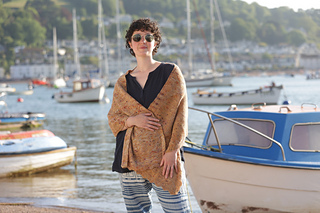
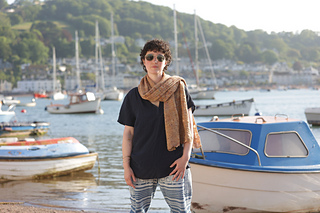


Prestwick Pebble Wrap
The Prestwick Pebble Wrap is one of seven patterns in issue five of John Arbon Textiles’ in house magazine, The Annual, published in September 2025.
There are kits available for this pattern.
This wrap draws inspiration from days by the Ayrshire seaside in southwest Scotland, wandering over pebbles, spotting colourful shells that get buried under the waves as the tide comes in. All whilst breathing in the crisp air blown off the waves.
Knitted from end to end, with each mirroring the other, this wrap knits up beautifully in our Exmoor Sock 4ply or our Seafarer sport. Designed to be large enough to keep out a cool sea breeze, and drapey enough to be worn as an accessory for a night out on the town.
Yarn
4ply
MC: 200 (350)g
CC1: 40 (60)g / CC2: 25 (40)g / CC3: 15 (20)g
Or 270 (380)g for a single colour wrap
Sport
MC: 280 (400)g
CC1: 50 (70)g / CC2: 30 (45)g / CC3: 15 (20)g
Or 350 (550)g for a single colour wrap
Sizes
1 (2)
Finished Measurements
a - Width: 43 (65) cm / 17 (25.5)”
b - Length: 180cm / 71”
Gauge
24 sts x 30 rows = 10cm / 4” square over both stocking stitch and sand stitch pattern, after blocking.
Needles
4ply: 4mm (UK 8 / US 6) knitting needles, suitable for working full width of wrap flat
Sport: 3.75mm (UK 9 / US 5) knitting needles, suitable for working full width of wrap flat
Always use a needle size that results in the correct gauge after blocking.
Samples shown in
Exmoor Sock (4ply; 400m per 100g)
Sample shown is size 1 in Mizzle (MC),
Drizzle (CC1), Mackerel-Sky (CC2) and Fairy Thimble (CC3)
Seafarer (Sport; 300m per 100g)
Sample shown is size 2 in Nuggle (MC),
Melusine (CC1), Megalodon (CC2) and Pisces (CC3)
Notes:
Prestwick Pebble Wrap is knitted from end to end, with each end mirroring the other. It starts (and ends) with garter stitch stripes, stocking stitch and drop-stitch waves, before transitioning into sand stitch for the main body of the wrap.
The first stitch of every row is slipped to create a neat selvedge. Slip this stitch knitwise with yarn at the back of your work. You may find it helpful to mark the pattern repeats with stitch markers.
When changing colours between rows, we recommend breaking your yarns, except on the garter wave stripes section, where you can carry the unused yarn up a row or two at the edge. For the two-colour sand stitch rows, float the unused yarn on the wrong side of your work.
3642 projects
stashed
4124 times
46 projects
stashed
86 times
- First published: September 2025
- Page created: September 5, 2025
- Last updated: September 15, 2025 …
- visits in the last 24 hours
- visitors right now




